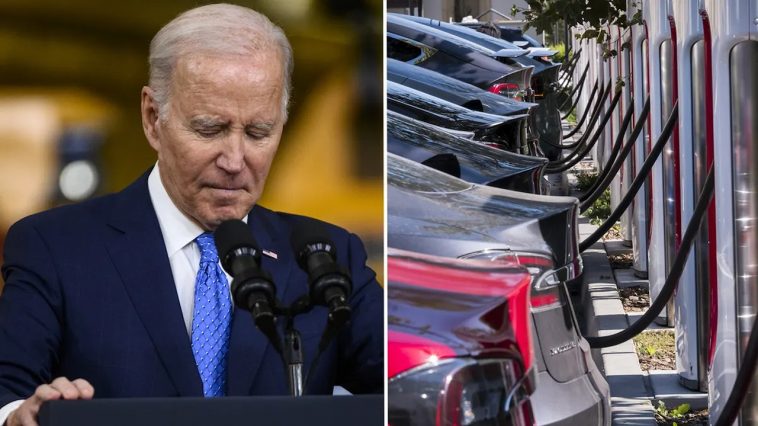LISTEN HERE:
The current government is on the brink of finalizing regulations pertaining to the emission levels of gasoline-fueled vehicle exhausts. These regulations have been labeled as a potential indirect insistence on electric vehicles, according to both consumer protection associations and energy sector representatives.
The Environmental Protection Agency (EPA) has put forward its proposed emission standards for the final review by the White House Office of Management and Budget. These standards aim for an ambitious objective: 67% of all new vehicle sales to be electric by the year 2032.
While the weekend saw reports emerging in the New York Times and Washington Post suggesting the government is set to further reinforce this daring objective, there have been rumblings about slackening some previously established targets. In anticipation of the future, President Biden had laid down an objective of making sure that half of all vehicle acquisitions were electric by the year 2030.
The White House had reassured that the proposed exhaust regulations from the EPA would carve out an unambiguous trajectory for sustained growth in electric vehicle purchases. Reflecting on this notion, Timothy Carroll, an EPA spokesperson, steered clear from addressing these reports directly in a conversation with Fox News Digital.
However, he confirmed that the agency is unwavering in its resolve to finalize an exhaust standard that is unpretentious, guarantees reductions in harmful atmospheric and climate pollutants, and brings about fiscal benefits for families.
Reliable sources familiar with these developments have alluded to a plan wherein the stricter federal exhaust regulations and EV sales targets might face a delay until 2030. Once the plan is given the green light and finalized, vehicle manufacturers will be compelled to expediently step up their compliance with these standards within a short period. This hint at a potential delay in the primary enforcement of these demanding standards for new vehicles is being deliberated upon due to voiced concerns by auto union leaders.
During the past year, the grand scale advancement towards electric vehicles has stumbled upon some hurdles. This is observed through a dip in sales and a subtle rise in prices. However, since its inception, the EPA’s proposal has encountered significant resistance, from within the industry and some Republican legislators. They have contested that the market has not yet matured enough to accommodate such a hefty surge in electric vehicle acquisitions.
Moreover, the critics of this proposal have warned that these standards could unfairly favor China and would lead to escalated prices for American consumers. The Alliance for Automotive Innovation, which is a conglomerate of several major auto manufacturers, has shed light on some insightful data. It reports that a modest 9.3% of the total vehicle acquisitions last year in the U.S. were either electric or plug-in hybrids. This showcases an uptake from the 7% in 2022.
Interestingly this increase can be attributed majorly to purchases happening in California and in densely populated urban areas where the majority of electric vehicle purchases occur. Alongside, it is important to note that, in spite of these progressive steps, conventional gasoline-powered cars continue to be significantly less expensive than the counterparts running on electricity. The dynamics of market adaptation, cost balancing, and environmental footprint of these new policies, therefore, continue to be watched with great anticipation by all stakeholders involved.
More Articles: Real News Now


